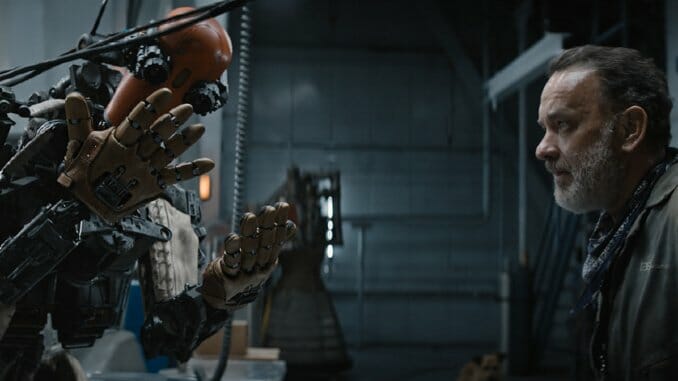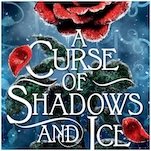Tom Hanks’ Robo-Road Trip Makes the Most of Forgettable Finch

As climate chaos continues to spin out of control, the populace has begun splitting into a few groups. In the U.S., researchers initially dubbed these groups the Six Americas. By now, it’s down to about three: Those that’d prefer to keep their heads in the sand, those desperately shouting for change, and those profiting off of inaction at the expense of our global future. The post-apocalyptic Finch takes place in such a future, dominated by extreme weather and hot enough to pop popcorn off a stray hubcap, watching a man reckon with his choices as he’s confronted with mortality.
There’s plenty of sand, and if it wasn’t for his dog, you’d think Finch (Tom Hanks) would happily dip his dome under the dunes. But like many Last Man on Earth stories, ranging from Harlan Ellison to Fallout—from I Am Legend to Mary Shelley and Stephen King—a dog can be worth everything once civilization has fallen. Finch and its fatherly interests in teaching a robot (Caleb Landry Jones) to survive in order for it to help a dog survive, might just be another drop in this particular sci-fi bucket, but its overachieving performances and FX (and uneasy relationship to our present) at least allows it moments of novelty in the subgenre’s long and crowded legacy.
-

-

-

-

-

-

-

-

-

-

-

-

-

-

-

-

-

-

-

-

-

-

-

-

-

-

-

-

-

-

-

-

-

-

-

-

-

-

-

-








































